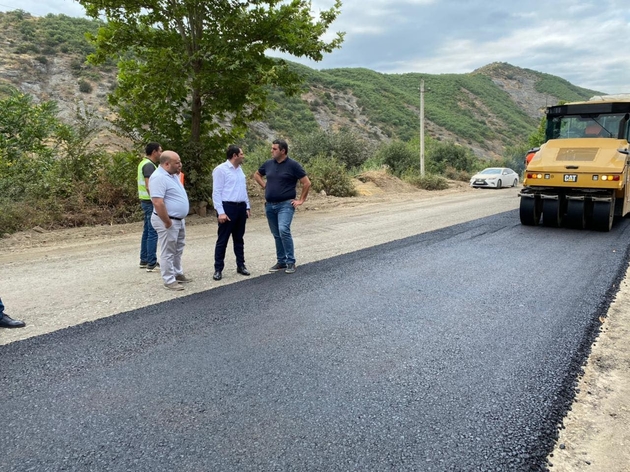In late August, presenting the new government's program to the parliament, Armenian Prime Minister Nikol Pashinyan stated that Armenia is ready to unblock regional communications with Azerbaijan. According to Pashinyan, just as Armenia must get a road to the Russian Federation and Iran through the territory of Azerbaijan, so Azerbaijan must get a road through the territory of Armenia to reach its eastern regions. However, Yerevan still faces a lot of problems with communications.
On August 25, at the Gubadli border-combat point near the road connecting the cities of Goris and Kapan, an incident occurred between Armenian and Azerbaijani border guards, as a result of which a soldier of the Azerbaijani Armed Forces was stabbed in the chest. Azerbaijan briefly blocked the section of the Derbend-Shurnukh road of the Gerus-Kafan interstate road.
After that, Eurasianet writes, the questions were raised about the slow pace of construction of an alternate road that avoids Azerbaijani territory. The main road connecting the cities of Goris and Kapan in Armenia’s Syunik region runs alongside – and in some cases across – Azerbaijani border, in territory which Baku regained control of as a result of last year’s war. Since early 2021 Azerbaijan has been setting up border guard posts and erecting signs reading “Welcome to Azerbaijan”.
There is an alternative to this route: another road connecting the two cities that runs further to the west, well away from the Azerbaijani border, through the town of Aghvani. But that road, especially the southern section between Aghvani and Kapan, is in dire condition and needs a total reconstruction to be suitable for heavy traffic. In an address to parliament on August 26, Prime Minister Nikol Pashinyan referred to the Aghvani route, which he referred to as an “alternative” to the “disputed territory” that the current road passes through, and said it would be finished by the end of the year. But questions have arisen as to the pace at which that alternative road is being made ready.
Since coming to power in 2018, Pashinyan’s government has placed a high priority on road construction. In 2019, the government constructed and repairs 440 kilometers of roads, and the budget for road construction the following year was doubled. That year a further 460 kilometers was rebuilt and repaired. The budget for 2021 envisaged repairing or constructing another 500 kilometers of roads, but the war and its consequences forced the government to alter its plans. The new complexities surrounding the existing road were evident as soon as the war ended last year. As part of the ceasefire Armenia agreed to hand back Azerbaijan’s Gubadli region; the road passes through slivers of that territory in some spots and runs very close to it in others. On December 11, Armenia’s Ministry of Defense announced that "the security of the 21-kilometer section of the Goris-Kapan highway that passes through the disputed area will be guaranteed by Russian peacekeepers."
The state budget approved on December 10 mentioned the construction of only one road: in northern Armenia, connecting the cities of Vanadzor and Alaverdi to the Georgian border. Contracts for the construction of the Aghvani road were awarded several months later.
On May 16, a tender for the construction of one 12.5-kilometer section between Tatev and Aghvani was awarded to Builder Construction LLC; the company got a contract of 623 million drams (about $1.3 million). Another 17.5-kilometer section is being constructed by Vosmar LLC, which on July 15 was awarded a 2.7 billion dram ($5.5 million) contract without a tender having been issued; the official notice explained that the contract was “urgent.” A 1.2-billion-dram ($2.4 million) contract for the 13-kilometer section between Tatev and Aghvani was awarded to Caravan LLC, also without a tender, on July 6.
At an August 27 sitting, the government took a decision to allocate 7.6 billion drams ($15 million) toward reconstruction and repair works of several additional key road projects, including roads to the Georgian, Iranian, and Turkish borders.
“The 2021 budget was based on inertia and it didn’t take into account the post-war challenges and priorities,” economist Suren Parsyan told Eurasianet. He said it wasn’t clear whether or not the 7.6 billion drams was new money or was reallocated from other parts of the budget. “We don’t yet have budget executions reports so we don’t know what has already been done,” he said.






